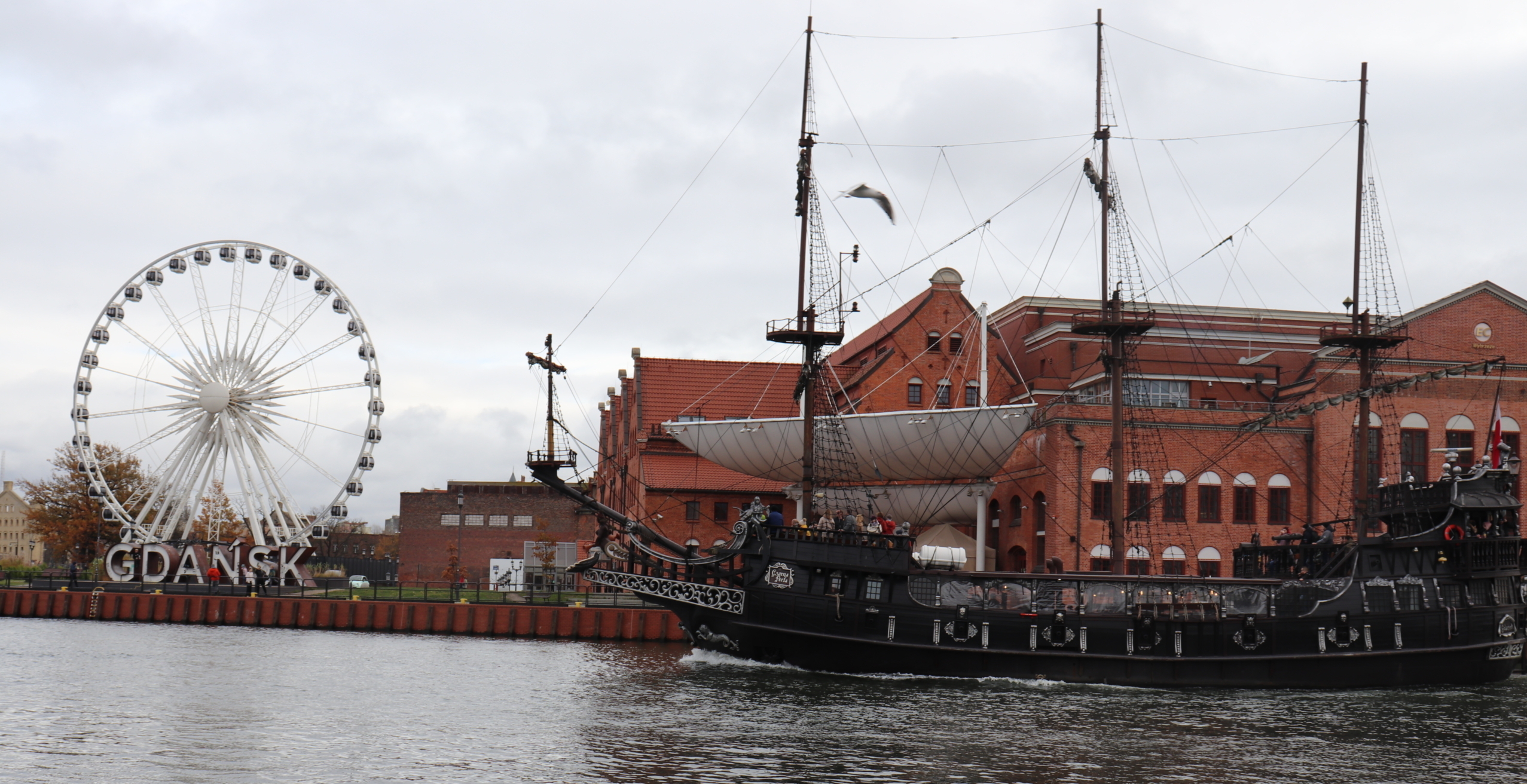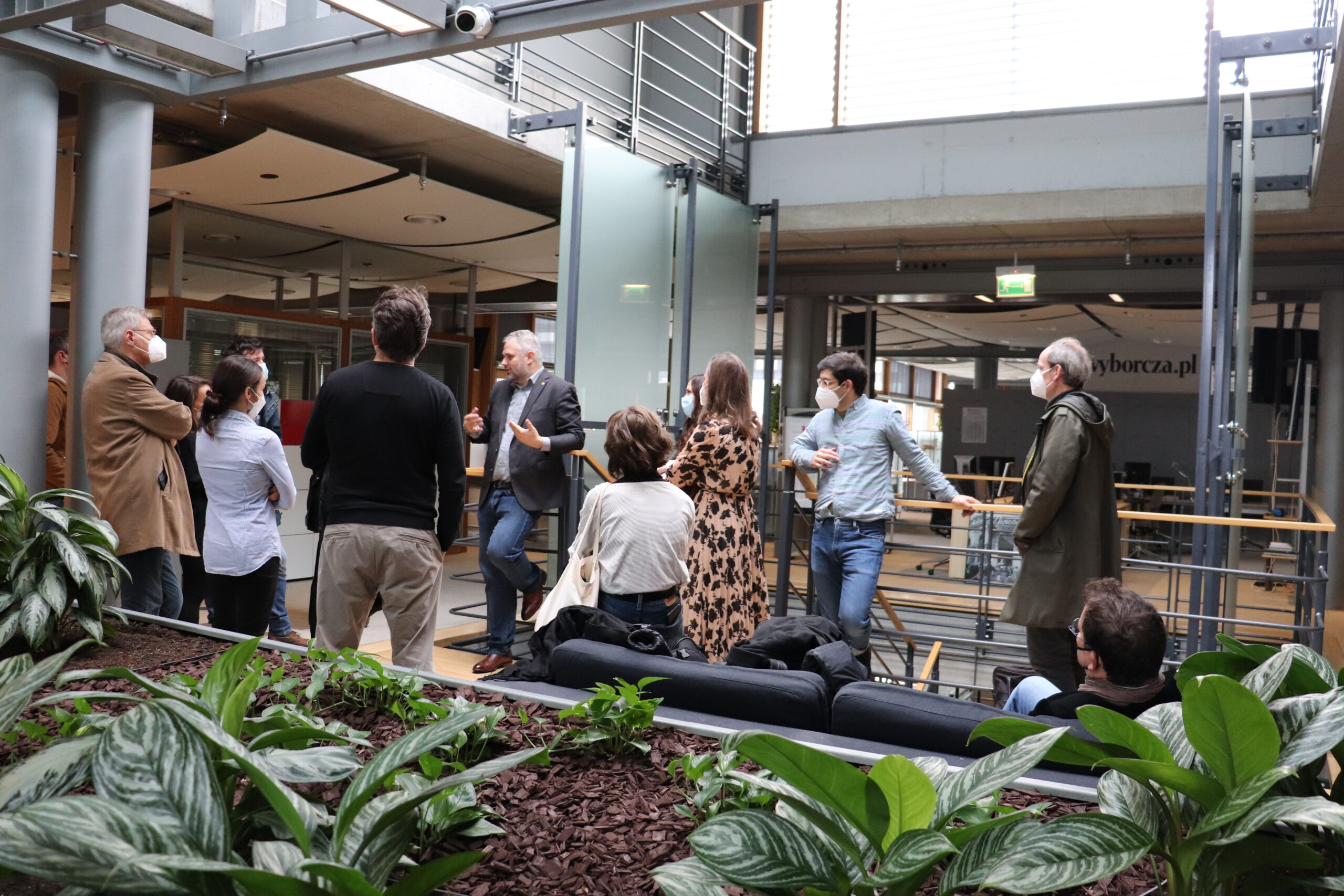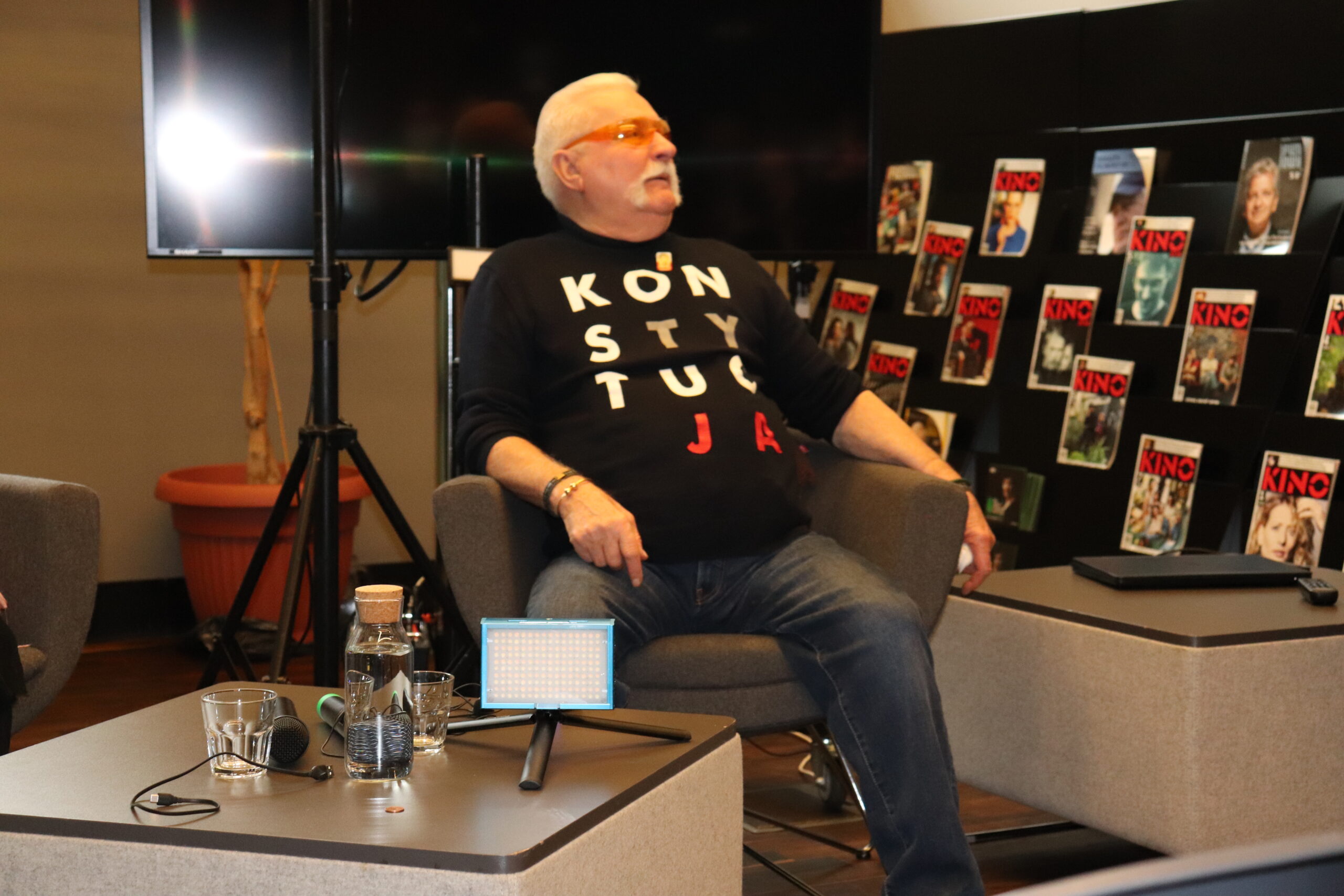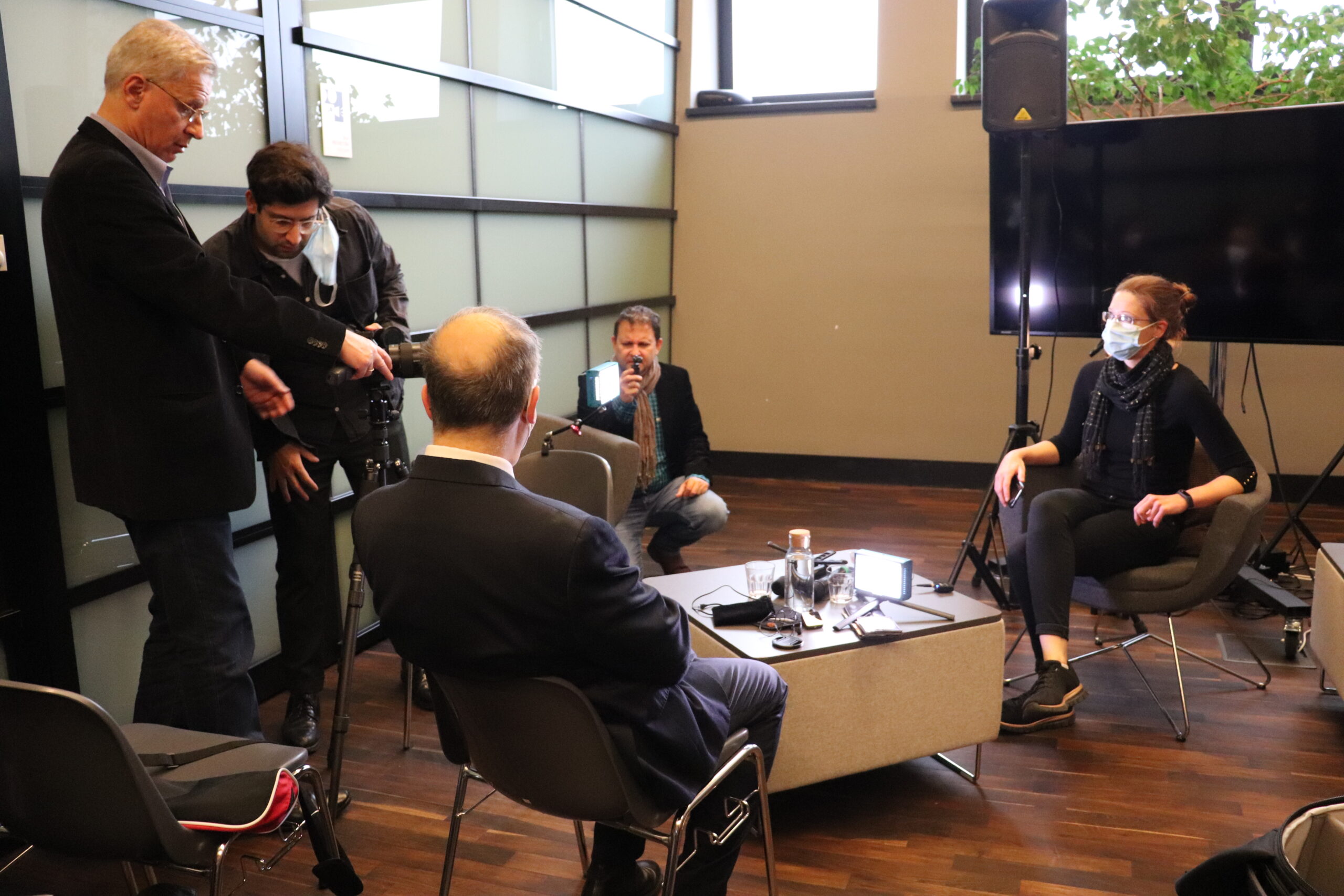Journalists from Central and Eastern Europe Visit EUKI Climate Projects in Poland
by anja Maximow, GIZ/EUK
Energy and Climate Media Dialogue in Poland
From 3 – 6 November 2021 the International Journalist Programme (IJP) held the Energy and Climate Media Dialogue in Poland as part of the EUKI project Central Eastern European Climate and Energy Policy Scholarship for Journalists. Eleven journalists from seven countries travelled to Warsaw and Danzig to visit NGOs, media institutes and think tanks. The organisations visited deal with climate change issues, driving forward Poland’s climate policy so as to achieve the European climate targets.

During the three-day excursion, the group of journalists also visited Polish climate projects funded by the European Climate Initiative (EUKI). Monika Zwierz from Just Transition Lab reported on the challenges of advising regions on how to design a participatory and fair phase-out of fossil fuels. Marcin Kowalczyk, Head of Climate at WWF Poland, reported live from COP26 in Glasgow on the expectations of Polish climate activists for the UN Climate Change Conference to adopt far-reaching global emissions reductions.
The Media Dialogue also involved a visit to the Polish daily newspaper Gazeta Wyborca. Here, deputy editor-in-chief Bartosz Wieliński guided the group on a tour through the newspaper’s offices and answered the journalists’ questions. In addition to interesting insights into the situation of the free press in Poland, the focus was on climate and energy media coverage in Poland. The Gazeta Wyborcza has introduced a separate section ‘KLIMAT’ dedicated to raising Polish readers’ awareness of the climate crisis and its consequences.

Dr Joanna Maćkowiak-Pandera, president and founder of the Think Tank Forum Energii and Tobiasz Adamczewski, director of the Think Tank’s Renewable Energy Unit used their analyses to showcase Poland’s current climate situation. The duo explained what steps need to be taken to decarbonise key sectors of the economy and thus achieve the European climate targets by 2030 and climate neutrality in Poland by 2055.
The experts from Forum Energii have also noted a positive trend in the public’s perception and in media reporting on climate topics. The number of enquiries concerning climate-related data received by the Think Tank went up to 200 in 2020. From 2017 to 2021, EUKI financed the Think Tank’s Clean Heat project which devised a strategy for reducing air pollution in Poland. The Int-E-Grid project, also funded by the EUKI, promotes the expansion of electromobility in Poland and Germany.
Another highlight of this trip was a meeting with the Nobel Prize Winner and former President of Poland, Lech Wałęsa, in the European Solidarity Centre. When asked how he viewed Poland’s energy transition, Wałęsa responded saying, ‘I regard the switch to new energy sources as a necessity. We have become too dependent on coal and need to find a way to decarbonise. It’s not a question of if, there is only the question of how.’

The journalists taking part in the Energy and Climate Media Dialogue came from Slovakia, Slovenia, Romania, England, Germany, Croatia and Austria and are alumni of the International Journalist Programme. Under the The German-Central Eastern European Bursary, they received bursaries enabling them to report on climate and energy topics through host media outlets in Germany.

Eva Frantova from Slovakia is currently working for the Slovakian newspaper Denník SME as an expert for climate issues. As an IJP fellow, she spent two months in Berlin working for Die Welt. Her work for the newspaper along with various networking events and seminars on climate topics made her more attuned to the challenges surrounding the climate and our environment.
The Energy and Climate Media Dialogue in Poland gave the journalists some insights into Polish climate policy along with an opportunity to network. For Gašper Andrinek, a journalist with Slovenia’s national radio broadcaster, exchanges with other climate journalists are an important factor.
